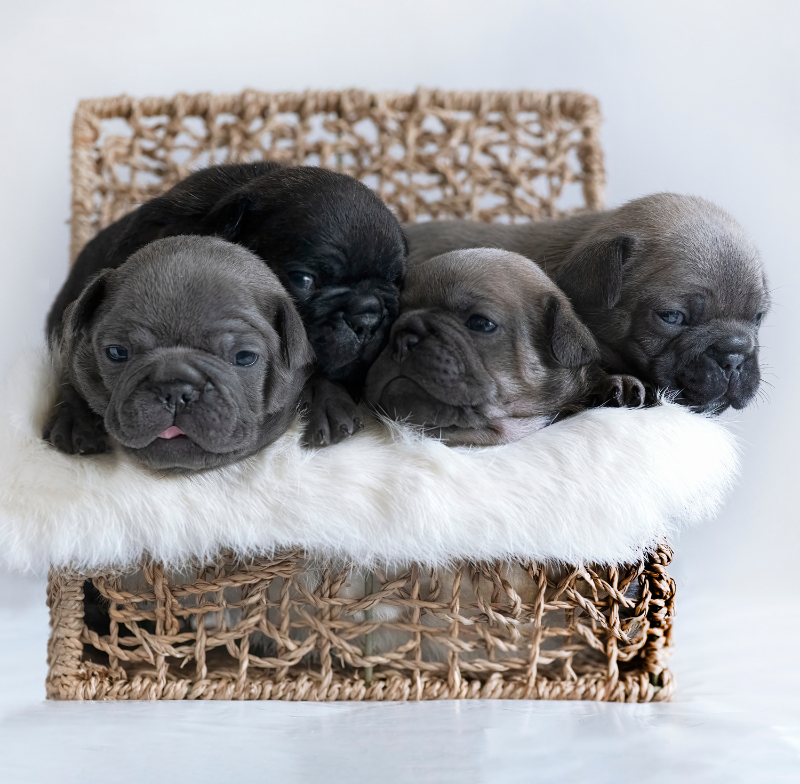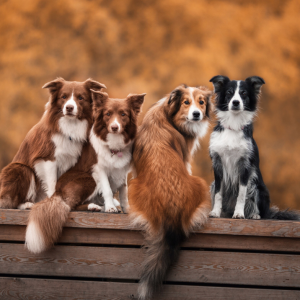Week 7 is a crucial stage in the development of puppies and the recovery of the mother. By this time, puppies are becoming more independent, exploring their environment, and preparing for their transition to new homes. Meanwhile, the mother is gradually regaining her pre-pregnancy condition and requires support during this phase. Understanding the needs of both the mother and her puppies ensures a smooth transition and healthy development. This guide covers every aspect of care for mum and her puppies in week 7.
Mum’s Health and Well-being
At seven weeks postpartum, the mother dog is significantly less involved in the direct care of her puppies. She is regaining strength after whelping, and her nutritional and physical needs must be met to ensure her overall well-being.
Nutrition for Mum
Since lactation is still ongoing but gradually decreasing, the mother needs a well-balanced diet to sustain energy and maintain her weight. High-quality, protein-rich dog food with essential vitamins and minerals is ideal. If the mother has lost a significant amount of weight due to nursing, consider supplementing her diet with nutrient-dense foods or high-calorie dog food to aid in her recovery.
Fresh water should always be available to support hydration, especially if she is still nursing. Ensure that the mother is fed multiple times a day rather than one large meal to avoid digestive issues and to provide her with sustained energy.
Physical Recovery
By week 7, the mother should be showing signs of returning to her normal weight and energy levels. However, she may still experience some physical aftereffects of pregnancy. Gentle exercises such as short walks and playtime will help her rebuild muscle tone and stamina.
Monitor her for any signs of postnatal complications, such as mastitis (inflammation of the mammary glands), unusual discharge, or lethargy. If any concerning symptoms arise, consult a veterinarian promptly.
Emotional and Social Well-being
The mother dog may be experiencing a shift in her role as her puppies become more independent. While she is still involved in their socialization, she may begin to spend more time away from them. It is important to provide her with her own space where she can rest undisturbed. Reintroducing her to her usual routine, including individual attention and affection, will support her emotional well-being.
Puppy Development at Week 7
By week 7, puppies are active, curious, and engaging more with their surroundings. They are also refining their social skills and learning important behaviours from their mother and littermates.
Nutrition for Puppies
Puppies at this stage are transitioning fully to solid food. High-quality puppy food formulated for growth and development is essential. Feeding small, frequent meals throughout the day helps accommodate their developing digestive systems.
While some puppies may still nurse occasionally, this is more for comfort than sustenance. If the mother is reluctant to nurse, it is a natural part of the weaning process. Ensure puppies have access to fresh water at all times.
Physical Health and Veterinary Care
Week 7 is an important time for veterinary care. Puppies should receive their first vaccinations, including those for distemper, parvovirus, and adenovirus. Deworming should also continue as prescribed by the veterinarian.
Monitor puppies for any signs of illness, including lethargy, diarrhoea, vomiting, or difficulty breathing. Healthy puppies should be active, have bright eyes, and maintain a good appetite.
Socialization and Training
Proper socialization during week 7 is crucial in shaping a puppy’s temperament. Puppies should be exposed to different sounds, surfaces, people, and gentle handling to build confidence and prevent fear-based behaviours.
Basic training can begin at this stage. Simple commands such as “sit” and “come” can be introduced using positive reinforcement techniques like treats and praise. Crate training can also begin, helping puppies become comfortable with their own space.
Hygiene and Grooming
Puppies are still learning to groom themselves, and occasional cleaning may be necessary. Wipe them with a damp cloth if they get dirty, and introduce them to gentle brushing to get them accustomed to grooming. Keeping their sleeping area clean and dry helps prevent infections and skin issues.
Interaction with Mum and Siblings
Puppies continue to learn important social behaviours from their mother and littermates. Playtime includes wrestling, chasing, and biting, which helps them understand boundaries and communication. The mother may correct rough behaviour by gently disciplining them, which is a vital part of their learning process.
Separating puppies from their mother and littermates too soon can lead to behavioural problems. While some breeders may start preparing puppies for their transition to new homes around week 8, keeping them with their mother until at least eight weeks helps ensure they develop proper social skills.
Preparing for Transition to New Homes
For those rehoming puppies, week 7 is the time to prepare them for their future environment. Introduce them to different people and gradually expose them to household sounds such as vacuum cleaners, doorbells, and televisions to prevent future fears.
Puppies should also be accustomed to gentle handling by humans, including checking their paws, ears, and teeth, to make future grooming and veterinary visits easier.
Caring for mum and puppy in week 7 requires attention to their nutritional, physical, and emotional needs. The mother dog is regaining her strength and gradually reducing her caregiving role, while puppies are becoming more independent and preparing for their next stage in life. By providing proper nutrition, veterinary care, socialization, and emotional support, you can ensure both the mother and her puppies thrive during this crucial week.
Following these guidelines will help create a smooth transition for everyone involved, setting a strong foundation for a healthy and well-adjusted future.
Discover more from A Tail of Two Dogs
Subscribe to get the latest posts sent to your email.





Leave a Reply